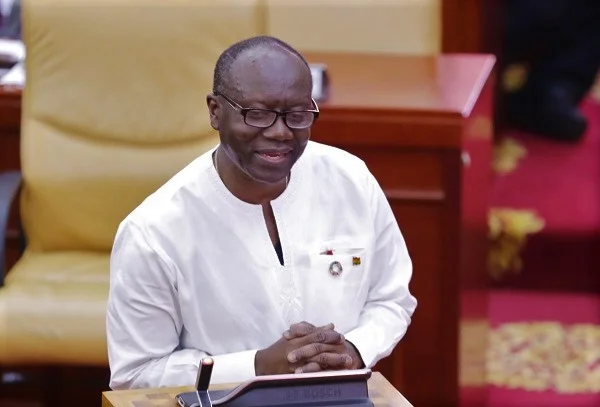2022 Budget: Total revenue, expenditure pegged at Ghs 100.5 bn and Ghs 137.5 bn
Minister for Finance, Ken Ofori-Atta, in the presentation of the 2022 Budget Statement has announced government’s plan to raise total revenue [comprising grants] in excess of Ghs 100.5 billion for the 2022 fiscal year.
The projected revenue representing 20% of GDP, marks an increment from the projected outturn of GH¢70.3 billion, equivalent to 16.0 percent of GDP for 2021. Domestic Revenue is estimated at GH¢99.5 billion and represents an annual growth of 44.0 percent over the projected outturn for 2021.
“The increase in domestic revenue by 44 percent is as a result of the impact of a major progressive tax policy, complemented by improvements in tax compliance and reforms in revenue administration that we have outlined in this budget,” stated the Minister.
With regards to projected expenditure for the 2022 fiscal year, the Minister noted, total expenditure (including payments for the clearance of arrears) is projected
at GH¢137.5 billion, equivalent to 27.4 percent of GDP.
The expenditure estimate for the 2022 fiscal year represents a growth of 23.2 percent above the projected outturn of GH¢111.6 billion, equivalent to 25.3 percent of GDP for 2021.
key drivers of expenditure growth, the Minister disclosed include capital expenditure, funding of key government flagship programmes, wage bill, and interest payments.
Commenting on the projected fiscal deficit on a cash basis for the 2022 fiscal year, Mr Ofori-Atta noted overall budget deficit will be GH¢37.0 billion, equivalent to 7.4 percent of GDP.
The projected deficit includes the financial sector and energy sector Independent Power Producers payments and represents a nominal year-on-year reduction of about 30.7 percent over the projected outturn of 12.1 percent of GDP in 2021.
The Minister for Finance, presenting the budget and commenting on government’s medium-term framework noted a new Medium-Term National Development Policy Framework (MTNDPF) for the period between 2022 and 2025 has been drafted to guide the medium-term economic recovery and transformation for the country.
Adding the new MTNDPF is consistent with government’s Ghana Beyond Aid agenda and is informed by its COVID-19 response strategy as outlined in the Ghana CARES Obaatanpa Programme.
According to the Finance Minister, government’s broad macroeconomic goals to support its medium-term objectives include:
- Restoration of macroeconomic stability with a focus on fiscal consolidation and debt sustainability;
- Maintaining a healthy balance between the implementation of the revitalisation and transformation programme and fiscal consolidation to promote growth within a stable macroeconomic environment.
- Providing an environment that is supportive of private sector (including promoting entrepreneurship) for domestic businesses and for FDI to thrive;
- Building a robust financial sector to support growth and development
- Deepening structural reforms to make the machinery of Government work more efficiently and effectively to support socio-economic transformation; an
- Implementing reforms to increase revenue mobilization and the efficiency of public expenditures.
- Plugging leakages and persecution of offenders



